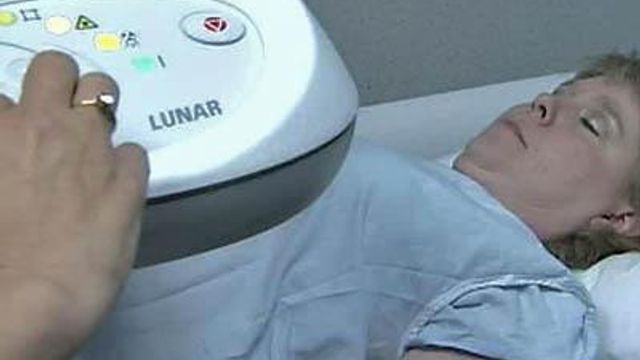Early Screening Key to Treating Osteoporosis
Millions of Americans have osteoporosis, but there are no external symptoms until the damage is done. An early diagnosis can mean an early start to treatment.
Posted — UpdatedSeven years ago, at age 50, Lee Davis had her first bone density exam and everything was fine. Four years later, she had breast cancer.
Davis started noticing changes in her bones. Health experts said some medications and medical treatments can contribute to bone loss. Other risk factors for osteoporosis include a family history of the disease and a sedentary lifestyle.
Health officials claim women are more at risk than men, especially those of post-menopausal age and in hormone replacement therapy. They said smoking and excessive alcohol can contribute as well as a diet lacking calcium and vitamin D.
Dr. Joseph Melamed, of Wake Radiology, said he remembers when there was no effective treatment for bone loss.
Melamed said women first need to be screened. Health experts said a bone densitometry exam is quick and painless. The scan results show bone density in a vareity of colors. A green color shows a normal range, yellow means low bone mass or osteopenia while red is osteoporosis.
A diagnosis starts a course of treatment, including medication, calcium supplements and exercise.
Davis was never a big fan of exercise, but she said she tries to go to the gym and do weight-bearing exercises. She is on medication and increased calcium in her diet.
"I need to pay attention to it. It's nothing to kid around with," she said.
You should consider earlier screening if you have other risk factors for osteoporosis.
• Credits
Copyright 2024 by Capitol Broadcasting Company. All rights reserved. This material may not be published, broadcast, rewritten or redistributed.





